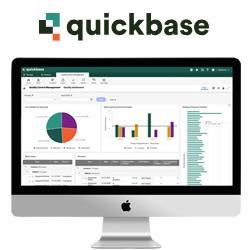Congressional Inaction on 1603 Grant Program and PTC Risks Renewable Energy Market Investment, Jobs and Growth
Policy and finance experts predict continued significant growth driving towards grid parity if incentives are renewed; warn of great risk to market if programs lapse
Washington, DC -- At the Phase II renewable energy policy forum hosted by the American Council On Renewable Energy (ACORE) on Capitol Hill this week, members of Congress, industry leaders and investors called for the renewal of important programs, including the 1603 Grant in Lieu of Tax Credits and production tax credit (PTC), to bolster renewable energy's success and American competitiveness. Participants cited government policy as critical to the stability of the industry, with inaction on the incentives and policy uncertainty creating a competitive disadvantage for one of America's fastest growth engines and job creators.
"I believe that the…PTC should be part of any tax extenders package going forward," said Congressman Charles Bass (R-NH). "The PTC and ITC are absolutely critical to the ongoing growth of the alternative energy industry. I will continue to remind my colleagues that renewable energy is and will be a critical part of our energy future."
"The urgency to renew the PTC and the 1603 program, which expire at the end of 2012 and this year respectively, is not well understood," said Pat Eilers, Managing Director of Madison Dearborn Partners. "The market reality is that wind projects need to target an operational date of September 2012 in order to obtain tax equity and/or debt financing commitments. Projects scheduled to go active after next September will not be considered by investors as it does not allow enough margin for project delays to meet the end of year deadline to qualify for the PTC. This means that financing needs to be in place and construction started by March 2012. From a practical perspective, the PTC expires in four months. In addition, the ability to use the tax credits is highly constrained because the tax equity market is predicted to be only able to satisfy approximately half of the current renewable market demand for 2012. Further, the tax equity market can't be relied on given the troubled credit market environment the renewable industry experienced in 2008 and 2009. Without extension of the PTC and 1603, we will see an approximately 50% contraction in renewable energy investment, project development and its supply chain over the next two years. The PTC extension is paramount for the wind industry with the 1603 program working as a critical complementary program to afford tax equity supply to meet demand and ensure developers the ability to monetize both the PTC and ITC tax credits in the challenging credit markets. If the PTC and 1603 are not renewed immediately, investment, construction and the associated job growth will be significantly crippled."
Discussion at the forum focused on securing existing shorter-term incentives to bridge the gap for the next 1-2 years. However, there was also discussion of the longer-term outlook and the need to level the playing field with traditional sources of energy.
Arno Harris, CEO of leading solar energy developer Recurrent Energy, said, "Conventional forms of energy have enjoyed stable incentives for nearly a century�if renewables are given that level playing field, the market will only continue its growth and its trajectory toward cost parity. Congressional inaction has put at risk the market momentum of the last several years, as well as significant private investment, thousands of jobs, and our national energy security."
Despite a lagging economy, renewable energy has shown impressive growth in recent years. In 2010, renewables represented 33% of all new US energy production, according to the Energy Information Agency. Over the same period, renewable energy has made significant gains in cost reductions and efficiency enhancements relative to traditional energy sources. Since 2008, solar energy costs have come down 60%, and wind costs 30%. The growth of the renewable energy sector has been one of the few bright spots for the US economy and job growth, and programs like 1603 and the PTC have proven to be net revenue generators for the US Treasury by growing the industrial tax base.
"In this time of austerity and difficult decisions, the answer isn't to do nothing�it's to make those tough choices, and make the right ones," said Retired Vice Admiral Dennis McGinn, ACORE President. "The rest of the world is not standing idly by to wait for the US to lead the renewable energy sector�it is and will continue to move on without us. We must continue the smart incentive programs that allow the US the ability to achieve cost parity as soon as possible, and put ourselves at the fore."
Under the existing incentive structure, renewable energy has proliferated to the point that in certain parts of the country, such as the energy market in Texas, wind can lower the wholesale clearing price and save consumers millions. However, without continuing the existing programs for a short-term bridge followed perhaps by a more strategic energy policy, the date at which renewable energy achieves cost parity will be delayed and the US is likely to lose out on an extremely important economic opportunity and job creation just when they are most needed.
ACORE holds the Phase II renewable energy policy forum each December in Washington, DC, to bring together policy and finance leaders and renewable energy developers to take stock of the renewable energy policy landscape and to advocate for key issues for the year ahead.
About ACORE:
ACORE, a 501(c)(3) non-profit membership organization, is dedicated to building a secure and prosperous America with clean, renewable energy. ACORE provides a common educational platform for a wide range of interests in the renewable energy community, focusing on technology, finance and policy. We convene thought leadership forums and create energy industry partnerships to communicate the economic, security and environmental benefits of renewable energy. Additional information is available at www.acore.org.
Featured Product

